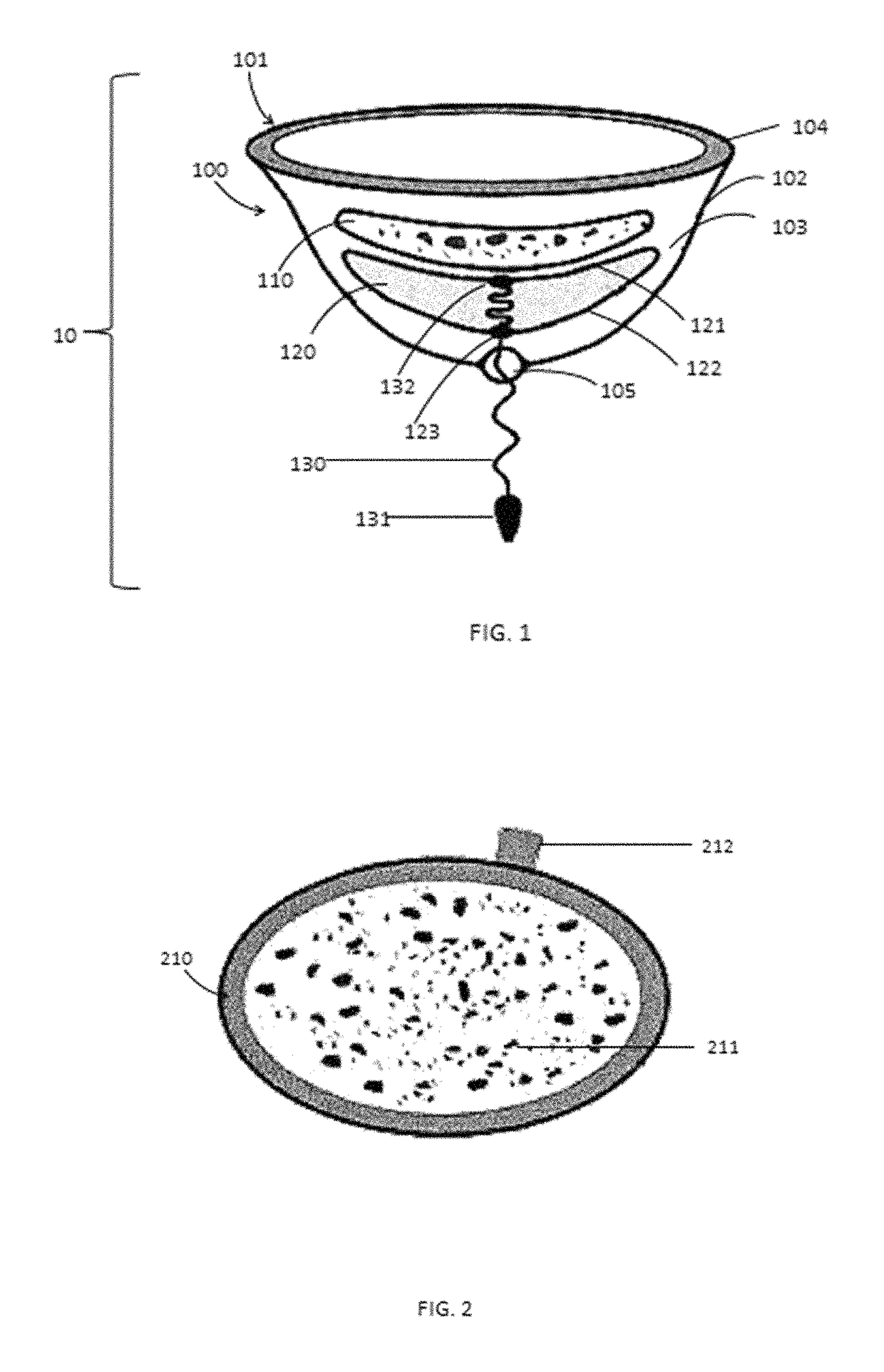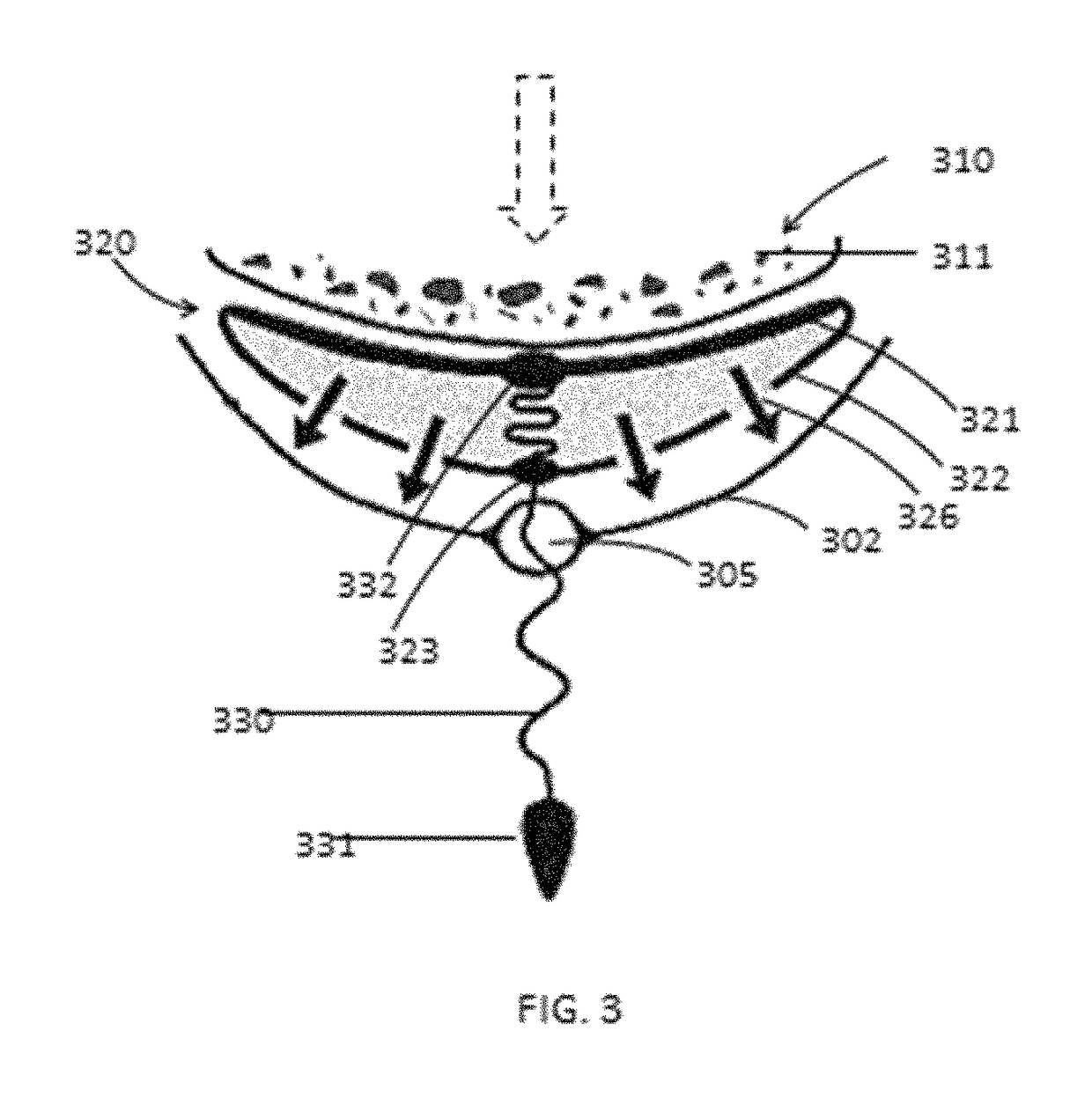Retrieval of biological materials from the human uterus, ovary and cervix by suction
a technology of cervix, ovary and uterus, which is applied in the directions of application, diagnostic recording/measuring, transportation and packaging, etc., can solve the problems of inconvenient tissue retrieval for diagnosis of disease and disorders, high cost of procedures, and requiring the participation of health care professionals and facilities
- Summary
- Abstract
- Description
- Claims
- Application Information
AI Technical Summary
Benefits of technology
Problems solved by technology
Method used
Image
Examples
example 1
Collection of Biological Samples
[0172]The biological materials are retrieved from adult women of reproductive age (20-35 years), perimenopausal and menopausal (45-60 years). In addition, such biological materials are from women undergoing hysterectomy and with cancers of the reproductive organs, in particular, uterine cancer, diagnosed by conventional methods and exposure to risk factors. The biological materials of the platform are examined for cancer biomarkers and specific cells are cultured in a 3-D culture system or frozen (−156° C.) for future analysis. The lesion exudates and spotted blood from the subject are of interest since 6% of women with vaginal bleeding have endometrial cancers.
example 2
Assay of Uterine Cancer Biomarkers
[0173]The biomarkers specific for various types of cancers are assayed by ELISA in the extracts of the platform, blood sera of the subjects and uterine washes. The biomarkers for endometriod cancers are: CA125 (MUC16; cell surface mucin), HE4 (WFDC2; disulfide secretory protease inhibitor), and YKL40 (CHI3L1; chitinase 3-like cartilage protein), and the biomarkers for some serous carcinoma are: IL6 [interferon β2], GDF-15 [bone morphogenetic protein], and IGF1 [somatomedin C]. These biomarkers are assayed for in the above samples. Significant differences between the groups are assessed using ANOVA. Relationships of neoplasia or other conditions identified by pelvic examination and biomarkers levels are evaluated by Linear and Logistic Regression Analyses.
[0174]Pre-cancer and cancer cells and macromolecules in retrieved biological materials from normal subjects and those with uterine cancers are analyzed for expression of genes in cells by multispect...
example 3
Purification and 3-D Culture of Pre-Cancer and Cancer Cells
[0175]Cells of the uterine device of the invention are separated by centrifugation, and specific cells isolated by Magnetic Cell Sorting using antibody and Laser Tweezers. The isolated pre-cancer and cancer cells, control cell lines (Ishikawa, Hec1A, HES) and biopsy samples of the uterus are cultured over biodegradable scaffolds (Cytodex-3, honeycomb PGA and PLA biopolymer) in culture media with sera in rotating reactors of a 3-D culture system (Synthecon, Inc.; see the world wide web at synthecon.com). Such a culture system allows differentiation of cells and tissue formation which resemble that which occurs in vivo.
PUM
 Login to View More
Login to View More Abstract
Description
Claims
Application Information
 Login to View More
Login to View More - R&D
- Intellectual Property
- Life Sciences
- Materials
- Tech Scout
- Unparalleled Data Quality
- Higher Quality Content
- 60% Fewer Hallucinations
Browse by: Latest US Patents, China's latest patents, Technical Efficacy Thesaurus, Application Domain, Technology Topic, Popular Technical Reports.
© 2025 PatSnap. All rights reserved.Legal|Privacy policy|Modern Slavery Act Transparency Statement|Sitemap|About US| Contact US: help@patsnap.com



